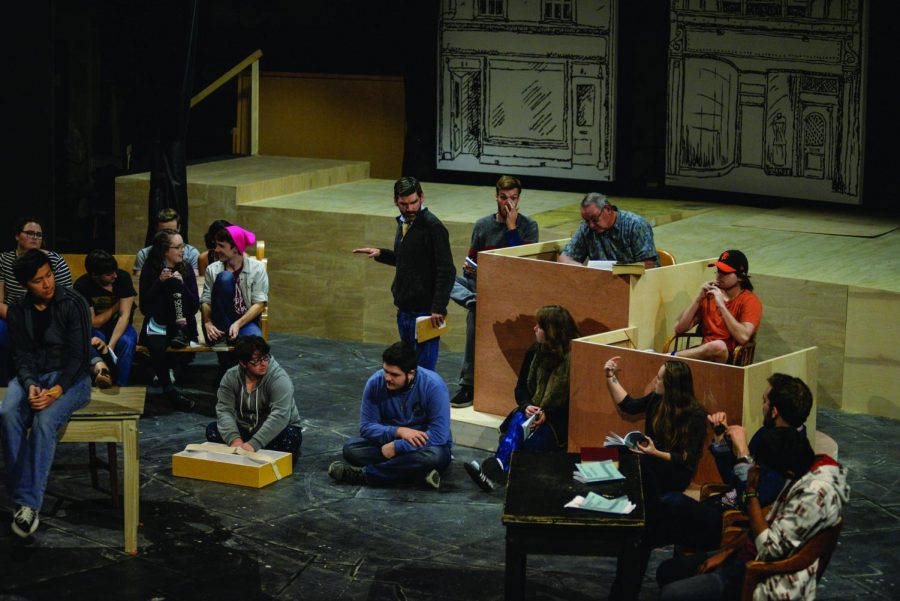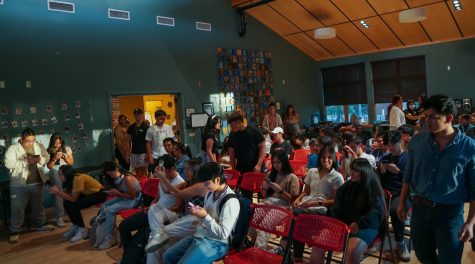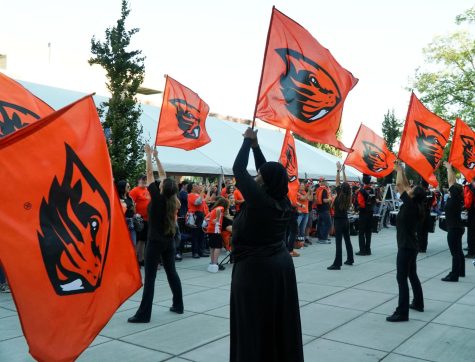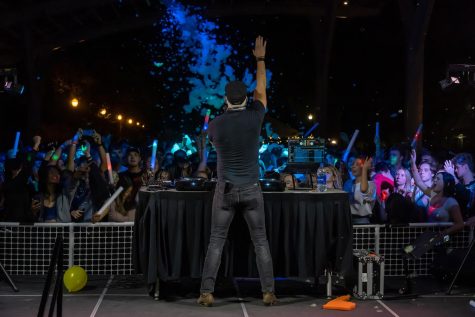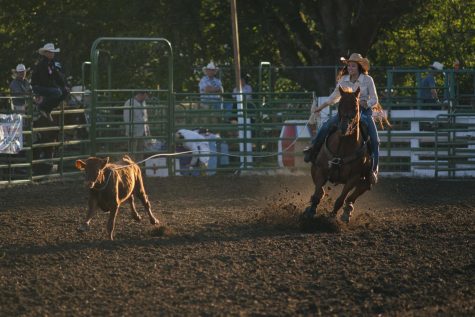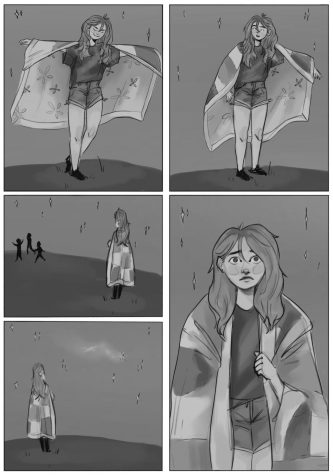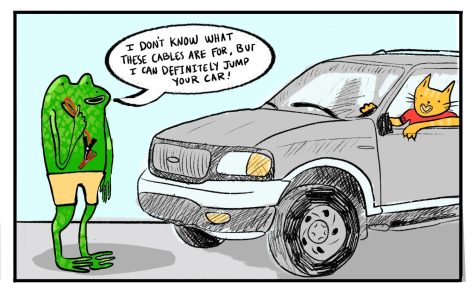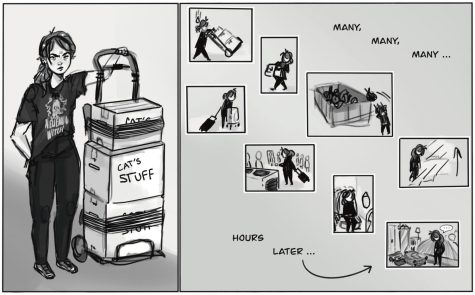Theatre Department puts on ‘Inherit the Wind’
November 6, 2017
Play depicts dramatization of Scopes vs. State of Tennessee trial of 1925.
“Place: a small town. Time: summer, not too long ago.”
Those are the only opening directions given by playwrights Jerome Lawrence and Robert E. Lee for their 1955 publication of “Inherit the Wind”.
Directed by Nathan Bush, an instructor of acting at OSU, “Inherit the Wind” is a dramatization of the events that occurred in court during the famous Scopes vs. State of Tennessee trial of 1925. This production falls under the OSU theater department’s overall theme this academic year, which is “In the Public Eye”. The Theater Department is hosting five performances of the play in November.
“All of our shows deal with events that are in the public eye, so to speak. They try to make a statement about what’s going on,” Bush said. “For example, in “Inherit the Wind” I feel personally it’s just as relevant today as it was when it was written.”
According to DeMara Cabrera, a theater department instructor and costume designer, although “Inherit the Wind” was written in 1955 and set in 1925, the play’s messages still ring true for audiences today.
“For me, I think that doing this play is very timely,” Cabrera said. “We’re at a time where a lot of things are being questioned regarding what should be included in education, separation of church and state, things like that.”
The Scopes trial was one that drew national attention for a multitude of reasons, according to Bush.
“That was the first broadcast trial in American history,” Bush said. “The first time that the mass media was allowed in the courtroom.”
The Scopes trial was centered around the persecution of Thomas James Scopes, a Tennessee educator who taught evolution in his class, as opposed to the state-mandated creationist model, according to Bush.
“Historically, this trial was kind of for show,” Bush said. “Scopes agreed to be arrested to be an example because Tennessee was the only state legislature that passed a law saying it was illegal to teach evolution or anything against the theory of creation.”
In the Scopes Trial, both the prosecution and defense were represented by well-known figures, according to Bush.
“In this trial you have the two biggest heavy hitters, a three-time presidential candidate versus the most famous lawyer at the time, William Jennings Bryan and Clarence Darrow,” Bush said.
According to Elizabeth Helman, area coordinator for the theater department and instructor of theater arts, “Inherit the Wind” presents many themes to the audience, such as public education standards and the validity of beliefs.
“The tension, either real or manufactured between science and religion is nothing new,” Helman said. “And we hear controversies happening all the time about what’s being printed in textbooks, what counts as truth and what counts as belief. Those kinds of questions are very relevant to today”
For Bush, there is one striking theme that runs alongside the creationist-science debate seen in “Inherit the Wind”.
“It’s on the surface about creationism versus evolutionism. It’s more of a catalyst for what I personally believe what this play is about, and that’s freedom of thought,” Bush said. “When do we have a right to tell people what to think and how to believe? When do we have the right as a society or as an educator to skew their unique view, their thought process?”
According to Cabrera, the deliberate selection of performing “Inherit the Wind” and the overall theme of “In the Public Eye” were made by theater staff to create conversations and new ways of thinking.
“It’s a loaded season, and we did that deliberately,” Cabrera said. “We want to bring about conversation, and hopefully bring about change as well.”
Showings of “Inherit the Wind” will be held Nov. 9, 11, 16 and 17 at 7 p.m., and Nov. 12 and 19 at 2 p.m.












































































































